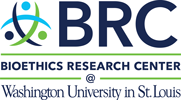Title: Genetic Testing of High School Students
Author: Adrienne Carpenter
Description: Genetics provide high school students the opportunity to undergo genetic testing to see if they are carriers of certain genetic diseases. Researchers want to explore the psycho-social effects the carrier detection program has on it’s students.
Keyword(s): genetic research, minors, decision-making capacity, waiver of parental permission, assent, deferential vulnerability, scientific validity
Based On: (Ross, 2006)
Case: Geneticists are interested in studying the psycho-social effects of early carrier testing for conditions such as Tay-Sachs and Cystic Fibrosis on adolescents and young adults. Among the effects they are interested in studying is whether early knowledge of carrier status affects marriage and child-bearing plans. They will offer carrier testing to individuals age 14-21 and will also conduct in-depth surveys/questionnaires about marriage and childbearing plans and hopes both before and after the testing. They plan to follow the participants yearly for ten years. They believe this is feasible because only the initial testing requires that participants be on-site. Follow-up questionnaires can be completed via mail or a secure internet connection. Investigators plan to offer incentives to improve their retention and follow-up rate. Investigators will use coding to maintain confidentiality.
Genetic testing is usually offered to couples of child-bearing age who plan on conceiving or have already conceived. As such, researchers are interested in studying the social and psychological effects of the program (i.e. students’ concerns and reactions, and whether they believe this is information they should share with a potential spouse, the role of peer pressure in sharing test results, and so forth), as well as the ability of adolescents and young adults to fully appreciate the test results.
- What kind of permission or consent is or should be required for participation in the study?
- What level of understanding should the adolescent demonstrate to participate in the study? When should parental permission be sought? Not sought?
- What ethical concerns are involved in researching students’ experiences of genetic testing, given that that the usual domain of such testing is between conceiving adult couples?
- What risks does the study pose? Is it permissible to enroll adolescents in this study?
Source: Ross, L. F. (2006). Heterozygote carrier testing in high schools abroad: what are the lessons for the US? Journal of Law, Medicine, and Ethics, 39(4). 753a-764.

